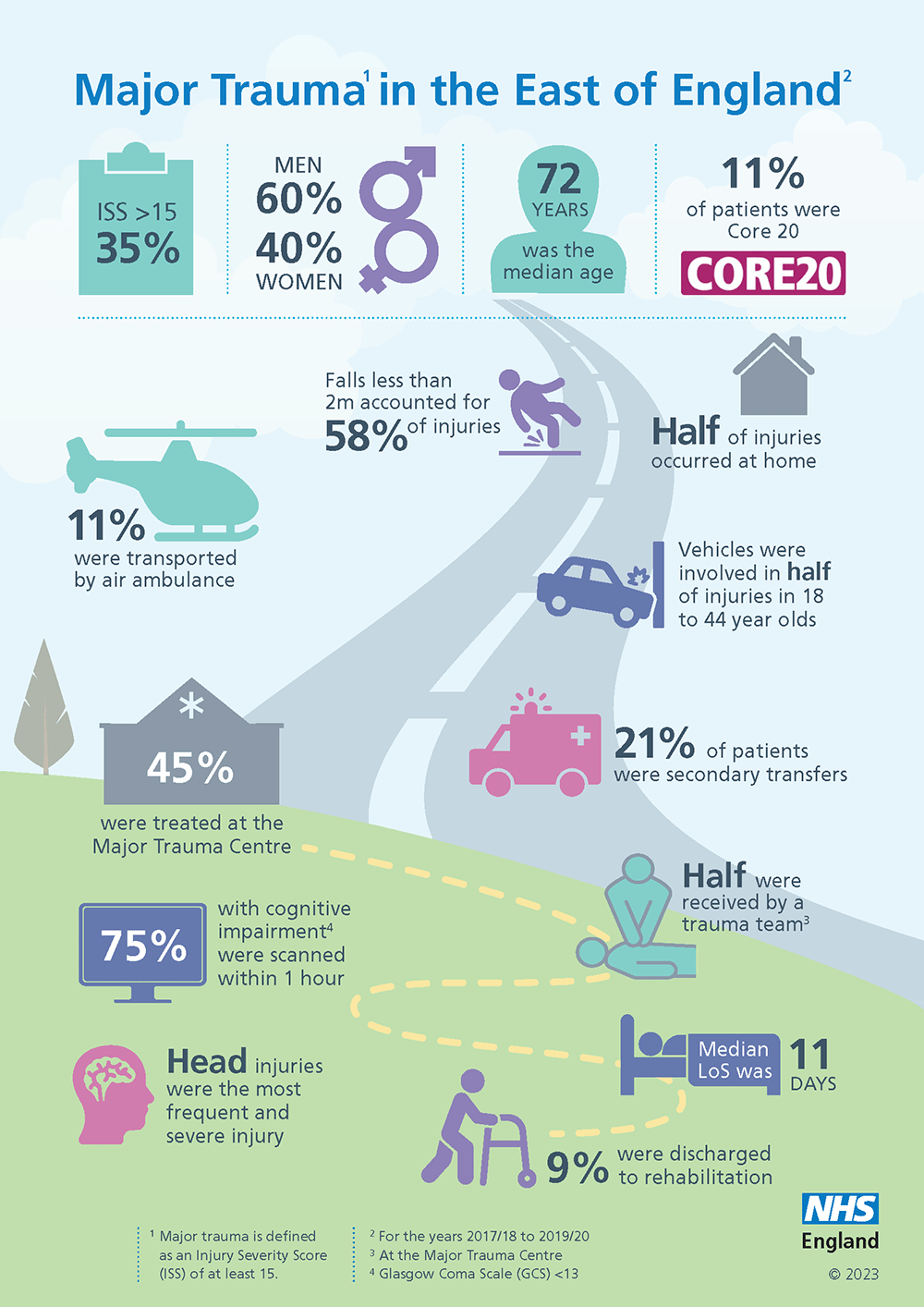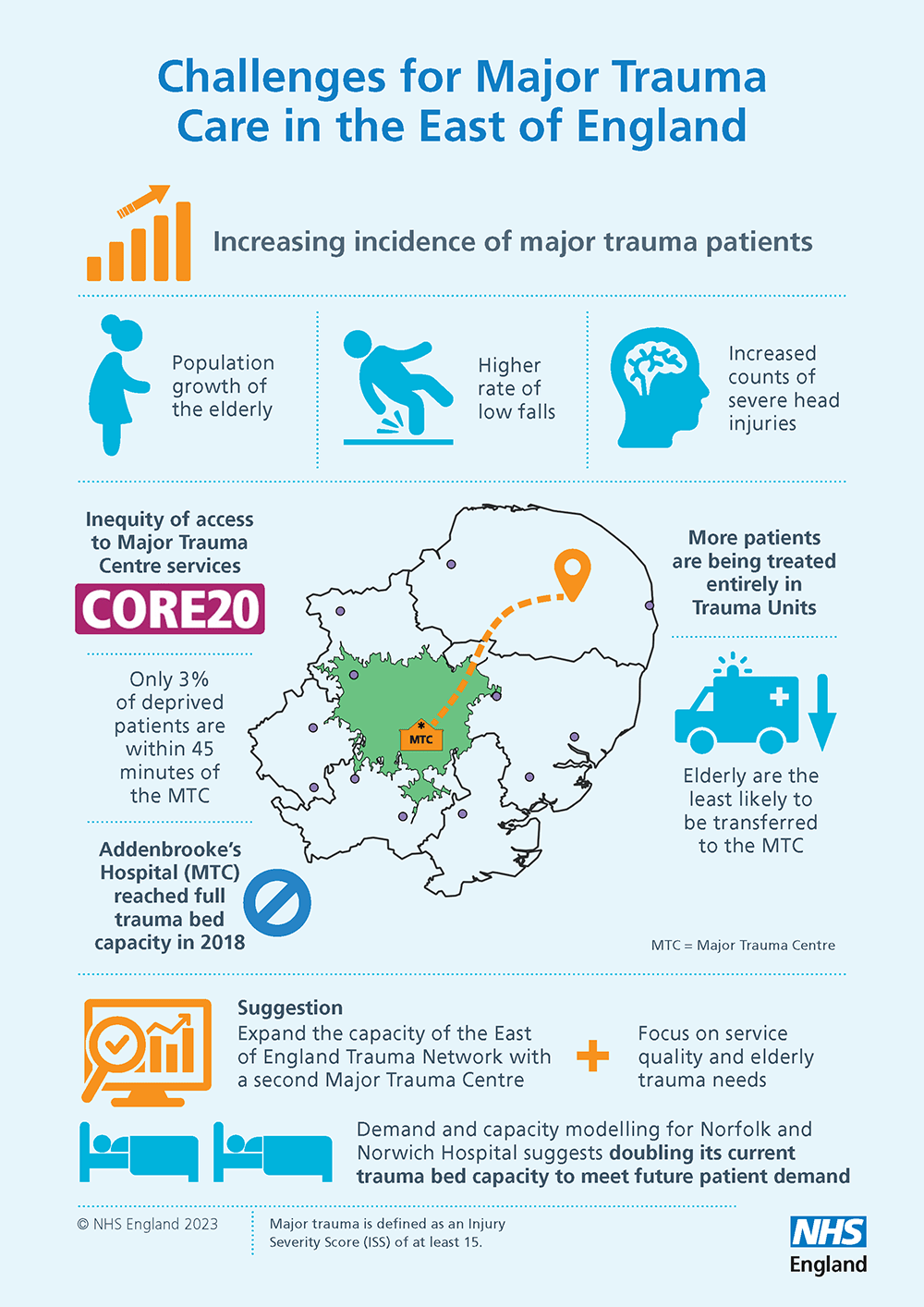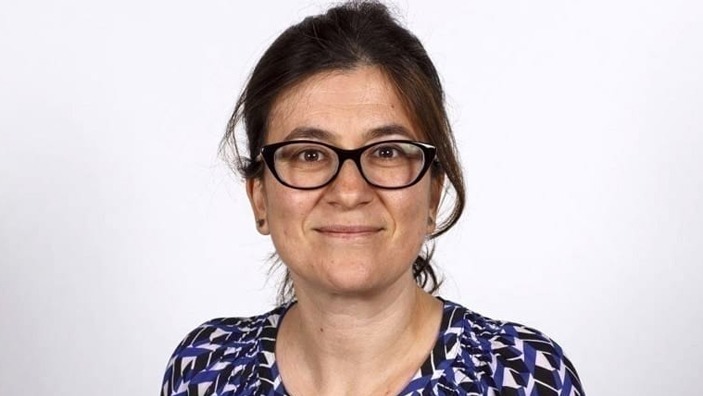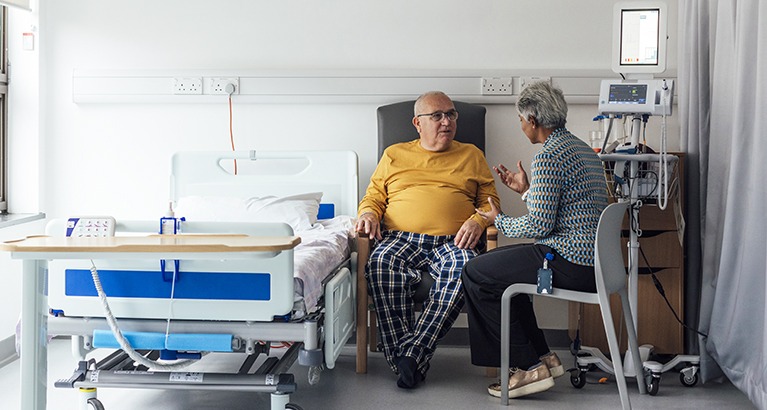Population growth and changes mean the number of major trauma patients in the East of England has doubled in the past decade, exceeding the original bed capacity at the region’s only Major Trauma Centre (MTC) at Addenbrooke’s Hospital in Cambridge, and consideration is required to expand network capacity, according to a new report authored by the Healthcare Public Health team at NHS England, East of England in collaboration with Cambridge Judge Business School.
The nature of major trauma has been changing, and the most common cause of admissions for major trauma in the East of England is falls less than 2 meters (low falls), often involving the elderly, which accounts for 58% of major trauma injuries. From 2012 and 2020, the incidence rate of these falls doubled, placing a higher strain on the region’s trauma care facilities. Head injuries, which may require specialised services only available at the MTC, are more likely to be the most severely injured region for major trauma patients and the likelihood of this increases with age.


Why some trauma patients are less likely to get consultant care
The report’s findings indicate that there is inequity in access to the MTC for the elderly, patients with low fall injuries, more deprived patients, and patients injured more than 35-minute driving time from the MTC. Patients treated at trauma units rather than the MTC are less likely to receive consultant-led care, and “the likelihood of receiving care related to Best Practice Tariff metrics also decreases with patient age”, says the report.
Report uses machine learning and scenario analysis for capacity and demand predictions
Authored by the Healthcare Public Health team (Dr Esther Kwong, Specialised Commissioning Public Health Consultant and Dr Lauren Rixson, Healthcare Public Health Officer) at NHS England in collaboration with Cambridge Judge Business School (Feryal Erhun, Professor of Operations & Technology Management; Houyuan Jiang, Professor of Management Science; and PhD candidate Zidong Liu), the report, titled “East of England Major Trauma Services: Public Health Needs Assessment 2023”, outlines a comprehensive assessment of the region’s trauma care needs and capacity.



Addenbrooke’s Hospital, the region’s sole MTC, is supported by trauma units at other hospitals. However, modelling indicates that the MTC at Addenbrooke’s reached its planned trauma bed occupancy capacity in 2018. Given the capacity constraints, the report demonstrates the additional resources likely required should East of England establish a second MTC at another regional hospital such as Norfolk and Norwich Hospital. Using machine learning and scenario analysis for capacity and demand predictions, the report supports NHS specialised commissioning to plan and develop a business case using a population health and data-driven approach.
How Norwich could become a Major Trauma Centre
The scenario and modelling analysis finds that turning Norfolk and Norwich University Hospital from a trauma unit to an MTC would require doubling its bed capacity to meet the needs of a 60-minute patient direct admission catchment area. Additionally, the report calls for improving the quality and capacity of other hospital trauma units, particularly those outside of a 60-minute driving to the current MTC and any proposed MTC.
The report includes recommendations for the capability and capacity of the trauma network services to match the needs of the East of England population, improve equity and quality of services for patients and importantly to address the causes of trauma injuries through ongoing prevention work such as falls prevention and violence reduction.
Featured faculty
Feryal Erhun
Professor of Operations & Technology Management
Houyuan Jiang
Professor of Management Science
Featured research
Kwong, E., Rixson, L., Erhun, F., Jiang, H. and Liu, Z. (2023) East of England major trauma services: public health needs assessment 2023.
Please email Professor Feryal Erhun if you would like to see a copy of the full report.
Featured student
Zidong Liu
PhD Candidate





